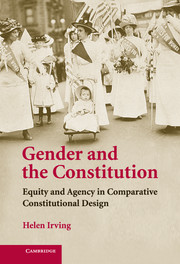1 - Framework
Published online by Cambridge University Press: 08 December 2009
Summary
A constitution is a powerful instrument. Indeed, in most countries, it is the supreme law, sitting at the peak of the political and legal hierarchy. It is the source and the voice of power, both constitutive and authoritative. It sets out the legal and political structures for the country it governs; it identifies and names political and judicial offices and spheres of jurisdiction; it describes and establishes the arms of government, and allocates powers between and among them. It also empowers and constrains the subsequent operation of government. A constitution's capacity may be “positive,” in granting specific powers to government, or “negative,” in denying or prohibiting the exercise of specific powers, either to government tout court or to specified arms or levels of government. Alternatively, its capacity may be neutral with respect to certain subjects, neither prohibiting nor obstructing the making of particular laws.
There are, of course, limits to what a constitution can do. It has no independent agency; it is not self-executing. To do anything, it requires institutions of implementation and enforcement, as well as political and legal will. It requires a culture of constitutionalism, in which constitutional authority is recognized and accepted. Where these exist, a constitution is powerful. In authorizing and constraining the exercise of public power, it creates opportunities or openings for embedding policies in laws made pursuant to the powers it grants to the institutions of government it establishes.
- Type
- Chapter
- Information
- Gender and the ConstitutionEquity and Agency in Comparative Constitutional Design, pp. 23 - 37Publisher: Cambridge University PressPrint publication year: 2008



